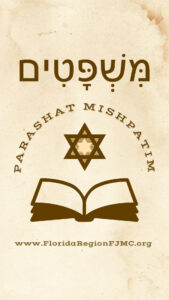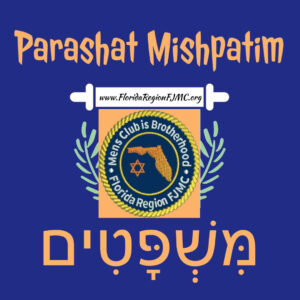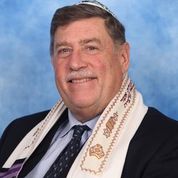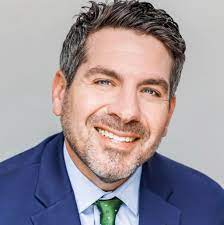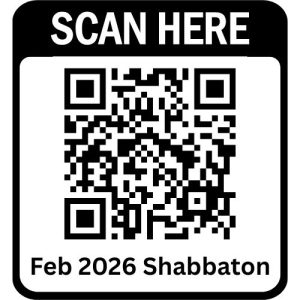
When you Choose Shabbat, you choose to learn that every Shabbat is different and special. This week I learned that Parashat Mishpaim (מִּשְׁפָּטִים) is the 18th weekly Torah portion in the annual cycle of Torah readings.
According to Wikipedia, Mishpaim (Exodus 21:1 through 24.18) contains 5,313 Hebrew letters, 1,462 words and 118 verses and 185 lines in the Torah scroll.
Rabbi Michael D Klein of Temple Torat Emet offers his insights on this week’s Torah reading, Mishpaim (מִּשְׁפָּטִים):
“Why begin a Torah reading with a conjunction? To show that the laws and statutes contained therein are connected to what came before.
Why then, does this Sedra begin with the laws concerning an indentured servant? Is the Torah trying to emphasize that a Jewish person should strive for financial independence and not desire to be dependent on anyone but themselves and Hashem? If the servant desires to remain in servitude, you must take him/her to the doorpost and pierce his/her ear with an awl. The message is clear. This person didn’t clearly hear or understand the concept of personal freedom. But, we need to ask, how did this person become dependent? The answer to this lies in the message of the special Torah reading, Shekalim.
Shabbat Shekalim reminds us that, in completing the census, a half shekel was taken from each individual which was equal for rich or poor alike. The Torah acknowledges that there will always be those who are more dependent on society to help with sustenance. In G-d’s eyes, we are all equal. This does not excuse us from the responsibility of taking care of those who cannot, for whatever circumstances, take care of themselves. In a just society, a safety net must exist, that allows even the poorest to survive. This is why indentured servitude was created. The underlying message is that all must strive, according to their ability to become financially independent by learning a trade or profession. The Torah realizes this and provides financial incentive toward independence even by establishing Cities of Refuge for those who resort to criminal behavior where they are rehabilitated and set upon the correct path by learning a trade. There cannot be peace in a society where there is not justice and that is why Mishpatim establishes many laws which are a major part of the 613 Mitzvot especially with regard to liability and responsibility in order to teach us that we must each respect one another’s property and safety.
Questions to ponder:
- Why is the owner of an Eved Ivri responsible for the servant and his wife and children?
- Where were criminals held before the establishment of the Cities of Refuge?
- How did Moses’ appearance change as the result of his communing with Hashem for forty days and nights?
- How is Moses able to share this experience with the elders and tribal leaders?
- Is a person required to donate a tenth for fruit which ripens during Shemita year? Why or why not?”
Rabbi Michael D. Klein attended Yeshiva College of South Florida and served as Torah Reader, Hebrew teacher, Chazzan and spiritual leader of various synagogues throughout South Florida. In January 2015 he became Ritual Director, Bnai/Bnot Mitzvah instructor and 7th grade Hebrew instructor for Temple Torat Emet of Boynton Beach. In October 2019 he was accepted into an accelerated track and received his shicha from Yeshiva Adath Wolkowisk and has been the Rabbinic leadership of Temple Torat Emet since August 2020. In September of 2022 he was appointed Rabbinic and Spiritual Advisor of the Florida Region of FJMC.
Choose Shabbat; choose to celebrate, to light candles, sing songs and learn a little Torah.
This moment of Jewish Learning is brought to you by the Florida Region of the Federation of Jewish Men’s Clubs (FJMC). We are part of a confederation of over 200 Jewish Men’s Clubs and Brotherhoods representing over 20,000 members across the United States, Canada, Latin America, and beyond. Learn more about how your Jewish Men’s Club or Brotherhood can affiliate with the FJMC at: https://www.fjmc.org/content/affiliating-fjmc.
The Florida Region of FJMC serves the needs of affiliated Men’s Clubs and Brotherhoods throughout the State of Florida. Get to know more about the FJMC Florida Region and our growing network of Jewish Men’s Clubs and Brotherhoods at www.floridaregionfjmc.org and please visit and LIKE our Florida Region FJMC Facebook Group at www.facebook.com/FloridaRegionFJMC.
